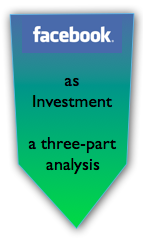
Africa [credit: Mapswire.com]
Africa is a nascent innovation powerhouse, and its leadership will become increasingly obvious during the coming decades, but the seeds are already visible as this post reveals: Africa’s population is exploding, and its young people are adopting tech alternatives to countries’ long-insufficient health, education, and financial infrastructure.
If you’ve been interested in international development for long, you have seen many prognostications about “Africa rising” over the years only to see them fade into oblivion. Predicting profound economic shifts is like predicting earthquakes; you study the driving forces and your algorithms crunch the data.
That isn’t stopping Helga Stegmann. She has led “user experience” agency Mantaray since 2006, and she gave a riveting talk last week in Chicago hosted by partner agency BoldInsight. In my experience, user experience folks rarely have their hands on the pulse of disruptive economic change, but the reason she is an exception reflects that Africa’s economic transformation is happening at the grassroots level (as with most revolutions), and her key orientation is user experience design, so researching users across rapidly evolving interfaces in devices. Follow along with my notes of her remarks […]
 Big Data in Healthcare and Education shares how U.S. and UK government agencies used big data & analytics to help evolve national policy and outcomes. These examples are useful because they show the range of big data projects; the U.S. example is simple, yet it has profound impact on the health of the citizenry and therefore on the economy. The UK example is more involved and shows in depth how organizations can use big data to address expensive programs that are full of unknowns—like national education. Big Data in Healthcare and Education shares how U.S. and UK government agencies used big data & analytics to help evolve national policy and outcomes. These examples are useful because they show the range of big data projects; the U.S. example is simple, yet it has profound impact on the health of the citizenry and therefore on the economy. The UK example is more involved and shows in depth how organizations can use big data to address expensive programs that are full of unknowns—like national education.
This post shares my notes from a recent Deloitte Dbriefs webcast, Analytics in Action, which you may watch and download its slides. The webcast was moderated by Steve Dahl, and David Weir and Haris Irshad presented the examples.
[…]

 Facebook As Investment: How Trust Issues Block Its Best Path to Wealth describes why Facebook needs to change its orientation to users to unlock its full wealth potential. Over the past month, it has been de rigeur to comment on Facebook’s IPO and “quality” as an investment, but I decided to hold back until I could free a window to consider the matter in sufficient detail. The result is the “Facebook As Investment” trilogy, of which this is the first part. Part Two analyzes Facebook-the-platform’s investment prospects. Part Three advises executives on how to isolate their social business investments from Facebook business risks. Facebook As Investment: How Trust Issues Block Its Best Path to Wealth describes why Facebook needs to change its orientation to users to unlock its full wealth potential. Over the past month, it has been de rigeur to comment on Facebook’s IPO and “quality” as an investment, but I decided to hold back until I could free a window to consider the matter in sufficient detail. The result is the “Facebook As Investment” trilogy, of which this is the first part. Part Two analyzes Facebook-the-platform’s investment prospects. Part Three advises executives on how to isolate their social business investments from Facebook business risks.
I did not buy into Facebook and do not plan to invest in its stock. I think it is a fantastic social venue and platform in which to connect with people (“stakeholders,” friends, associates..)—personally and for enterprises and brands. However, as I’ll argue here, Facebook‘s Achilles heel is a significant trust gap with most of its stakeholders. Its trust gap will make it difficult for Facebook management to fully […]
Situational Monopoly Is a 21st Century Profit Maker—Debunking Strategy Sacred Cows
 Since the 1990s, I have advised clients in many industries on using disruptive technology to change the rules, and one of the themes that has constantly recurred is companies’ decreasing ability to maintain high profits from product businesses. Products are not as profitable as they used to be. In the Industrial Economy, product life cycles were long because communication was infrequent and poor compared to today, which prolonged ignorance and novelty and product life cycles. It took years for fashions to cross the Atlantic, through the 1980s. Now fashions emerge simultaneously no matter where they originate. Today, novelty is consumed with alacrity, erasing differentiation and price premiums. Since the 1990s, I have advised clients in many industries on using disruptive technology to change the rules, and one of the themes that has constantly recurred is companies’ decreasing ability to maintain high profits from product businesses. Products are not as profitable as they used to be. In the Industrial Economy, product life cycles were long because communication was infrequent and poor compared to today, which prolonged ignorance and novelty and product life cycles. It took years for fashions to cross the Atlantic, through the 1980s. Now fashions emerge simultaneously no matter where they originate. Today, novelty is consumed with alacrity, erasing differentiation and price premiums.
To reference one statistic, in 2011 two billion people access the Internet, one third of the global population. They have access to infinite amounts of information and relationships. They share information about using products and services to create value in terms of their situations, and other people find them and interact. When people interact, they make each other smarter, fast. They expose product […]
Regina Herzlinger Keynotes Chicago Healthcare Executives Forum 35th Anniversary
Five-Point Prescription for U.S. Health Care—Involving Patients
 CHEF Chicago’s hospital executives listened raptly to Dr. Regina Herzlinger‘s impassioned message for transforming U.S. health care at their 35th anniversary celebration this month at the J.W. Marriott in Chicago. Dr. Herzlinger is respected and renowned for her message, so there were few surprises. The most distinctive element of her point of view is her strategy for taking a retail-led approach to transforming health care. She is very market- and consumer-focused, which is refreshing because it relies on the market and customers at least as much as the government. “Who Killed Health Care?” is her latest book, and she is a regular advisor to federal and state government officials. CHEF Chicago’s hospital executives listened raptly to Dr. Regina Herzlinger‘s impassioned message for transforming U.S. health care at their 35th anniversary celebration this month at the J.W. Marriott in Chicago. Dr. Herzlinger is respected and renowned for her message, so there were few surprises. The most distinctive element of her point of view is her strategy for taking a retail-led approach to transforming health care. She is very market- and consumer-focused, which is refreshing because it relies on the market and customers at least as much as the government. “Who Killed Health Care?” is her latest book, and she is a regular advisor to federal and state government officials.
[…]
If your business involves physical locations, geosocial applications represent a tantalizing possibility: people can talk about their presence and experience at one of your locations and, potentially, friends of their friends that have the same interest (or thirst). It adds long tail digital grease to conditions on the ground at a retail location. […]
These three examples showed how digitally produced social information could change entrenched human problems like war, excessive punishment and imprisonment and mass death by natural disaster. As such, they serve as examples of widespread change that will occur thanks to social networks and work processes. […]
To fully appreciate how “touch” applies to LinkedIn interaction, imagine yourself as a human brain. Through the centuries, you have evolved, and one of your key survival mechanisms is discerning how much of the truth someone is sharing with you. Hence, you rely on nonverbal communication, which is much more difficult to fake because people are less aware of it than they are of their words. […]
The WSJ succeeded in charging for content because their content was traditionally part of their customers’ workstreams. When your livelihood depends on something, you pay. Most “news” and media entertains, it has little financial impact. […]
Social networks change the economics of relationships because finding, developing and maintaining relationships is far less costly… Watch the migration from Friendster=>MySpace=>Facebook=>? It was relatively fast, people are mobile… Don’t think you are getting anything for free. Even if you are not paying cash, your interactions and position are building a rich data repository for Google or whoever else is providing “free” services […]
|
|


 Big Data in Healthcare and Education shares how U.S. and UK government agencies used big data & analytics to help evolve national policy and outcomes. These examples are useful because they show the range of big data projects; the U.S. example is simple, yet it has profound impact on the health of the citizenry and therefore on the economy. The UK example is more involved and shows in depth how organizations can use big data to address expensive programs that are full of unknowns—like national education.
Big Data in Healthcare and Education shares how U.S. and UK government agencies used big data & analytics to help evolve national policy and outcomes. These examples are useful because they show the range of big data projects; the U.S. example is simple, yet it has profound impact on the health of the citizenry and therefore on the economy. The UK example is more involved and shows in depth how organizations can use big data to address expensive programs that are full of unknowns—like national education.
 Facebook As Investment: How Trust Issues Block Its Best Path to Wealth describes why Facebook needs to change its orientation to users to unlock its full wealth potential. Over the past month, it has been de rigeur to comment on Facebook’s IPO and “quality” as an investment, but I decided to hold back until I could free a window to consider the matter in sufficient detail. The result is the “Facebook As Investment” trilogy, of which this is the first part. Part Two analyzes Facebook-the-platform’s investment prospects. Part Three advises executives on how to isolate their social business investments from Facebook business risks.
Facebook As Investment: How Trust Issues Block Its Best Path to Wealth describes why Facebook needs to change its orientation to users to unlock its full wealth potential. Over the past month, it has been de rigeur to comment on Facebook’s IPO and “quality” as an investment, but I decided to hold back until I could free a window to consider the matter in sufficient detail. The result is the “Facebook As Investment” trilogy, of which this is the first part. Part Two analyzes Facebook-the-platform’s investment prospects. Part Three advises executives on how to isolate their social business investments from Facebook business risks. Since the 1990s, I have advised clients in many industries on using disruptive technology to change the rules, and one of the themes that has constantly recurred is companies’ decreasing ability to maintain high profits from product businesses. Products are not as profitable as they used to be. In the Industrial Economy, product life cycles were long because communication was infrequent and poor compared to today, which prolonged ignorance and novelty and product life cycles. It took years for fashions to cross the Atlantic, through the 1980s. Now fashions emerge simultaneously no matter where they originate. Today, novelty is consumed with alacrity, erasing differentiation and price premiums.
Since the 1990s, I have advised clients in many industries on using disruptive technology to change the rules, and one of the themes that has constantly recurred is companies’ decreasing ability to maintain high profits from product businesses. Products are not as profitable as they used to be. In the Industrial Economy, product life cycles were long because communication was infrequent and poor compared to today, which prolonged ignorance and novelty and product life cycles. It took years for fashions to cross the Atlantic, through the 1980s. Now fashions emerge simultaneously no matter where they originate. Today, novelty is consumed with alacrity, erasing differentiation and price premiums. CHEF Chicago’s hospital executives listened raptly to Dr. Regina Herzlinger‘s impassioned message for transforming U.S. health care at their 35th anniversary celebration this month at the J.W. Marriott in Chicago. Dr. Herzlinger is respected and renowned for her message, so there were few surprises. The most distinctive element of her point of view is her strategy for taking a retail-led approach to transforming health care. She is very market- and consumer-focused, which is refreshing because it relies on the market and customers at least as much as the government. “Who Killed Health Care?” is her latest book, and she is a regular advisor to federal and state government officials.
CHEF Chicago’s hospital executives listened raptly to Dr. Regina Herzlinger‘s impassioned message for transforming U.S. health care at their 35th anniversary celebration this month at the J.W. Marriott in Chicago. Dr. Herzlinger is respected and renowned for her message, so there were few surprises. The most distinctive element of her point of view is her strategy for taking a retail-led approach to transforming health care. She is very market- and consumer-focused, which is refreshing because it relies on the market and customers at least as much as the government. “Who Killed Health Care?” is her latest book, and she is a regular advisor to federal and state government officials.